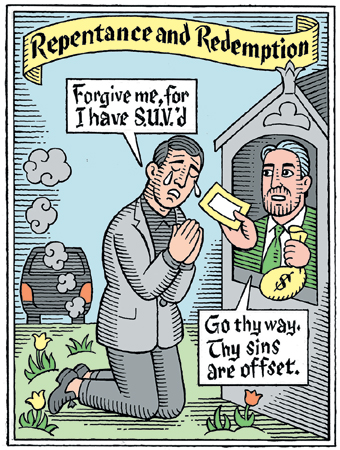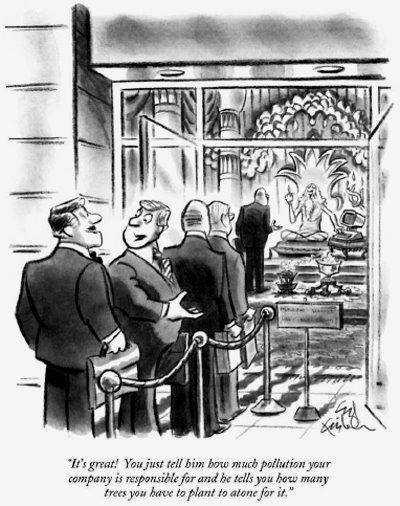The Baltimore Sun looks at eco-sin!! Some good confessions and testifying going on here.
"What's your biggest eco sin?
Baltimore Sun
September 18, 2009
"Kim Walker here with another guest post: I wrote earlier today about being initially hesitant about switching to a low flow showerhead. Water (over)usage is my biggest eco sin. And every time I soak in a hot bath after a long day at work, I swear it'll be my last."
"We all try to lessen our footprint, but everyone has a weakness or two."
Read rest of article
Tuesday, September 22, 2009
September 21st Global Wake-Up Call
When you pick up the phone, it could be me.
Hey, what's a wake-up call for you humans, anyway? Seems like the Exxon Valdez, LA Riots, the Iraq War, and Katrina didn't get through. You tell me. Is there any intelligent life out there?
Rev. Paul R. Bear, blogging polar bear
September 21st Global Wake-Up Call: "The world is sleepwalking into a crisis of epic and historical proportions."
Hey, what's a wake-up call for you humans, anyway? Seems like the Exxon Valdez, LA Riots, the Iraq War, and Katrina didn't get through. You tell me. Is there any intelligent life out there?
Rev. Paul R. Bear, blogging polar bear
September 21st Global Wake-Up Call: "The world is sleepwalking into a crisis of epic and historical proportions."
Maldives Unimpressed with G-8 Pledge to Limit Emissions
Climate Change Requires a Real Movement
by Mohamed Nasheed, president of Maldives
September 20, 2009
cross-posted from Huffington Post
"...[N]o one in the Maldives is applauding the recent pledge of the G-8 nations to try and hold temperature increases to 2 degrees and the atmospheric concentration of CO2 to 450 parts per million. A few years ago, those might have been laudable goals, but new science makes clear they're out of date."
"After the rapid Arctic sea ice melt in the summer of 2007, scientists realized that global warming was happening more quickly and on a larger scale than they had anticipated. Wherever they looked -- high-altitude glaciers, hydrological cycles, the spread of mosquitoes -- they found change happening decades ahead of schedule. In January 2008, James Hansen, one of the world's leading climatologists, published a series of papers showing that the actual safe limit for carbon in the atmosphere was at most 350 parts per million. Anything higher than that limit, warns Hansen, could seed "irreversible, catastrophic effects" on a global scale."
"We're already above that figure -- the current concentration is 390 ppm and rising. For the Maldives, climate change is no vague or distant irritation but a clear and present danger to our survival. But the Maldives is no special case; simply the canary in the world's coal mine. Neighboring Asian countries like Bangladesh are already suffering from saltwater intrusion as seas rise; Australia and the American southwest are enduring epic drought; forests across western North America are succumbing to pests multiplying in the growing heat. And all of this is with temperature increases of nearly 1 degree -- why on earth would we be aiming for 2 degrees?"
Read rest of article
by Mohamed Nasheed, president of Maldives
September 20, 2009
cross-posted from Huffington Post
"...[N]o one in the Maldives is applauding the recent pledge of the G-8 nations to try and hold temperature increases to 2 degrees and the atmospheric concentration of CO2 to 450 parts per million. A few years ago, those might have been laudable goals, but new science makes clear they're out of date."
"After the rapid Arctic sea ice melt in the summer of 2007, scientists realized that global warming was happening more quickly and on a larger scale than they had anticipated. Wherever they looked -- high-altitude glaciers, hydrological cycles, the spread of mosquitoes -- they found change happening decades ahead of schedule. In January 2008, James Hansen, one of the world's leading climatologists, published a series of papers showing that the actual safe limit for carbon in the atmosphere was at most 350 parts per million. Anything higher than that limit, warns Hansen, could seed "irreversible, catastrophic effects" on a global scale."
"We're already above that figure -- the current concentration is 390 ppm and rising. For the Maldives, climate change is no vague or distant irritation but a clear and present danger to our survival. But the Maldives is no special case; simply the canary in the world's coal mine. Neighboring Asian countries like Bangladesh are already suffering from saltwater intrusion as seas rise; Australia and the American southwest are enduring epic drought; forests across western North America are succumbing to pests multiplying in the growing heat. And all of this is with temperature increases of nearly 1 degree -- why on earth would we be aiming for 2 degrees?"
Read rest of article
Thursday, September 17, 2009
Global warming may bring tsunami and quakes
Yes there is something earthshaking about climate change. Melting ice caps and thawing permafrost seems to bore the humans, and poppies will put them to sleep, but maybe tsunamis and earthquakes will get their attention...
Best regards,
Fr. Paul R. Bear
Global warming may bring tsunami and quakes-scientists
Wed Sep 16, 2009 5:03pm EDT
Reuters
"LONDON, Sept 16 (Reuters) - Quakes, volcanic eruptions, giant landslides and tsunamis may become more frequent as global warming changes the earth's crust, scientists said on Wednesday.
Climate-linked geological changes may also trigger 'methane burps', the release of a potent greenhouse gas, currently stored in solid form under melting permafrost and the seabed, in quantities greater than all the carbon dioxide (CO2) in our air today.
'Climate change doesn't just affect the atmosphere and the oceans but the earth's crust as well. The whole earth is an interactive system,' Professor Bill McGuire of University College London told Reuters, at the first major conference of scientists researching the changing climate's effects on geological hazards.
'In the political community people are almost completely unaware of any geological aspects to climate change.'
The vulcanologists, seismologists, glaciologists, climatologists and landslide experts at the meeting have looked to the past to try to predict future changes, particularly to climate upheaval at the end of the last ice age, some 12,000 years ago.
'When the ice is lost, the earth's crust bounces back up again and that triggers earthquakes, which trigger submarine landslides, which cause tsunamis,' said McGuire, who organised the three-day conference.
David Pyle of Oxford University said small changes in the mass of the earth's surface seems to affect volcanic activity in general, not just in places where ice receded after a cold spell. Weather patterns also seem to affect volcanic activity - not just the other way round, he told the conference."
Read rest of article
Best regards,
Fr. Paul R. Bear
Global warming may bring tsunami and quakes-scientists
Wed Sep 16, 2009 5:03pm EDT
Reuters
"LONDON, Sept 16 (Reuters) - Quakes, volcanic eruptions, giant landslides and tsunamis may become more frequent as global warming changes the earth's crust, scientists said on Wednesday.
Climate-linked geological changes may also trigger 'methane burps', the release of a potent greenhouse gas, currently stored in solid form under melting permafrost and the seabed, in quantities greater than all the carbon dioxide (CO2) in our air today.
'Climate change doesn't just affect the atmosphere and the oceans but the earth's crust as well. The whole earth is an interactive system,' Professor Bill McGuire of University College London told Reuters, at the first major conference of scientists researching the changing climate's effects on geological hazards.
'In the political community people are almost completely unaware of any geological aspects to climate change.'
The vulcanologists, seismologists, glaciologists, climatologists and landslide experts at the meeting have looked to the past to try to predict future changes, particularly to climate upheaval at the end of the last ice age, some 12,000 years ago.
'When the ice is lost, the earth's crust bounces back up again and that triggers earthquakes, which trigger submarine landslides, which cause tsunamis,' said McGuire, who organised the three-day conference.
David Pyle of Oxford University said small changes in the mass of the earth's surface seems to affect volcanic activity in general, not just in places where ice receded after a cold spell. Weather patterns also seem to affect volcanic activity - not just the other way round, he told the conference."
Read rest of article
Walrus congregations show worrisome behavior
newsminer.com • Arctic barometers:
Walrus congregations show worrisome behavior
Published Thursday, September 17, 2009
"Reports of thousands of walrus forming unusual congregations on Alaska’s North Slope appear to confirm again the environmental challenges posed by relatively low fall ice coverage within arctic water. Walrus need ice from which to dive in the relatively shallow water above the continent shelf; when it’s not there, they must come to land. With their typical foraging method disrupted, they will likely enter winter in poorer condition than is ideal."
"The news of huge on-shore walrus gatherings comes shortly after the U.S. Fish and Wildlife Service took another step toward declaring the walrus an endangered or threatened species. The agency said last week that a petition to list the walrus presented a good case that the species could be threatened or endangered by the lack of ice. It opened public comment on the issue..."
Read rest of article
Walrus congregations show worrisome behavior
Published Thursday, September 17, 2009
"Reports of thousands of walrus forming unusual congregations on Alaska’s North Slope appear to confirm again the environmental challenges posed by relatively low fall ice coverage within arctic water. Walrus need ice from which to dive in the relatively shallow water above the continent shelf; when it’s not there, they must come to land. With their typical foraging method disrupted, they will likely enter winter in poorer condition than is ideal."
"The news of huge on-shore walrus gatherings comes shortly after the U.S. Fish and Wildlife Service took another step toward declaring the walrus an endangered or threatened species. The agency said last week that a petition to list the walrus presented a good case that the species could be threatened or endangered by the lack of ice. It opened public comment on the issue..."
Read rest of article
Subscribe to:
Posts (Atom)
Carbon Confessions from Earth Day 2009, Santa Barbara, CA
The Tree of Carbon Forgiveness

Carbon Penance Generator
|
Penance -- Then and Now

In the Middle Ages, there was no buying and selling of carbon indulgences. Now it's a booming business. "The worst of the carbon-offset programs resemble the Catholic Church's sale of indulgences back before the Reformation," said Denis Hayes, the president of the Bullitt Foundation, an environmental grant-making group. "Instead of reducing their carbon footprints, people take private jets and stretch limos, and then think they can buy an indulgence to forgive their sins." The New York Times, 4/29/07
Carbon-Neutral Is Hip, but Is It Green?

What's a Carbon Footprint?

A
carbon footprint is a "measure of the impact human
activities have on the environment in terms of the amount of
green house gases produced, measured in units of
carbon dioxide". It is meant to be useful for
individuals and organizations to conceptualize their
personal (or organizational) impact in contributing to
global warming. A conceptual tool in response to carbon
footprints are
carbon offsets, or the mitigation of carbon emissions
through the development of alternative projects such as
solar or wind energy or reforestation. A carbon footprint
can be seen as a subset of earlier uses of the concept of
ecological footprints.
Source: Wikipedia - Carbon Footprint